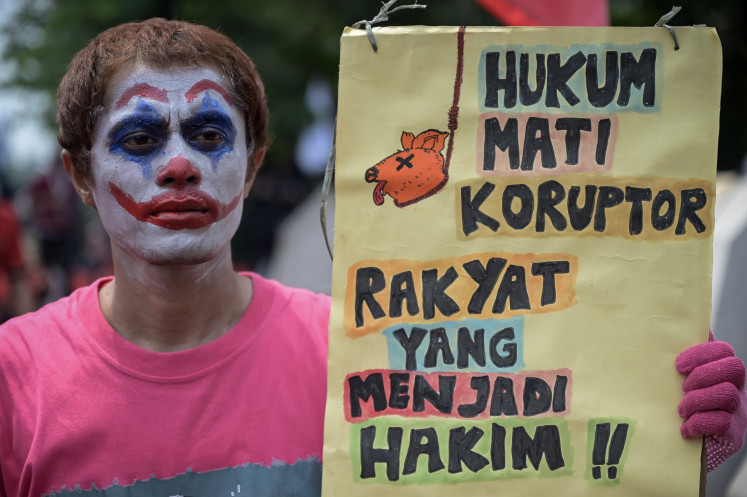Popular Reads
Top Results
Can't find what you're looking for?
View all search resultsPopular Reads
Top Results
Can't find what you're looking for?
View all search resultsWar scars top Australian soldier
With 38 years of service behind him, Maj
Change text size
Gift Premium Articles
to Anyone
W
/span>With 38 years of service behind him, Maj. Gen. John Cantwell recalls with eerie description the life of an Australian serviceman through Operation Desert Storm in 1991, a 2006 deployment to Iraq and another tour of the Middle East in 2010.
After witnessing frontline attacks on Iraqi soldiers where US forces used bulldozer blades mounted on tanks to bury the enemy alive in trenches, Cantwell leaves no stone of the brutality of war unturned.
Beginning his career when the military had no mandatory post-operation screening interviews, counseling or awareness of the emotional impact war has on its soldiers, Cantwell’s description of the internalized pressures he felt could be any veteran’s story.
The post-traumatic stress disorder (PTSD) Cantwell developed and silently suffered for over 20 years is spoken about in an honest and candid manner. Cantwell’s discussion of his refusal to reveal his PTSD to others — including his wife — for fear of not living up to the expectations of a man of his rank and experience is drawn out in a way that readers sympathize with his discomfort and internal reasoning.
The issue of personal shame and weakness surrounding sufferers in their initial phase of PTSD is also brought to light, as well as the lack of support from their governments, operating forces and the general community.
Cantwell likens the emotional scars inflicted on him from his experiences to the physical damage of an AK-47 assault rifle — small entry wounds that result in lasting and shattering damage on exit.
At times his frank account of the mental and physical scars left on even the most spirited of soldiers is hard to
read due to unshed tears of the reality of war.
Despite providing another perspective on her husband’s journey and PTSD’s wider impact, the inclusion of Jane Cantwell’s summary chapters of each war are unnecessary as Cantwell himself does a fine job of acknowledging the far-reaching affects without breaking stride.
Cantwell describes fearing death not only from the enemy but also friendly fire, and the troubles faced when those who were once the enemy became allies; his guilt of leaving war zones worse than when he entered them is also nicely touched on. The overwhelming heat of the desert during the day and the isolating cold of the night is described in such detail that you will almost smell the rotting flesh of casualties and stale sweat of well-used protective gear.
Haunting images of a buried soldier’s hand reaching out from the dampened Iraqi sand, reassembling the bodies of fallen enemies, returning decapitated heads to their bodies to make the job of cleanup crews easier and losing the lives of fellow allied soldiers from personal decisions are just some of the stories that will plague you long after reading this book.
In flashback sequences the book does seem to teeter on the edge of the dramatic, giving cause to wonder how much of it has been left to play in the world of fiction perhaps from Greg Bearup’s written links.
It also seems unlikely that the dead reckoning could be that precise given the detail of conversations with military personnel, so it can be assumed that a few liberties have been taken. But it doesn’t affect the overall grip the retelling of these events has on you.
After all, this is only one man’s account of highly stressful situations.
Whether you support war efforts or not, this book will force you to look past the reasoning of why men and women go to war for their countries, and focus on the effects it has on them long after their duty has been done.
Exit Wounds: One Australia’s War on Terror
John Cantwell and Greg Bearup
Victory Books, Random House, 2012
388 pages
The writer is an intern at The Jakarta Post.










